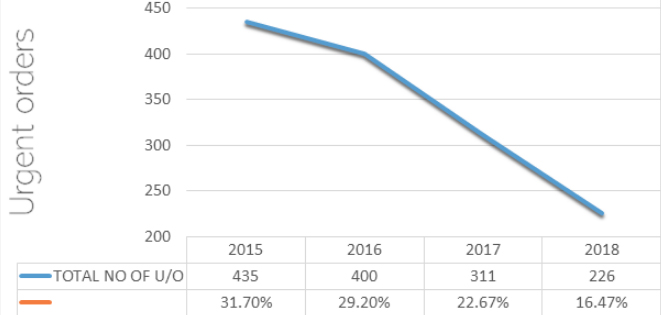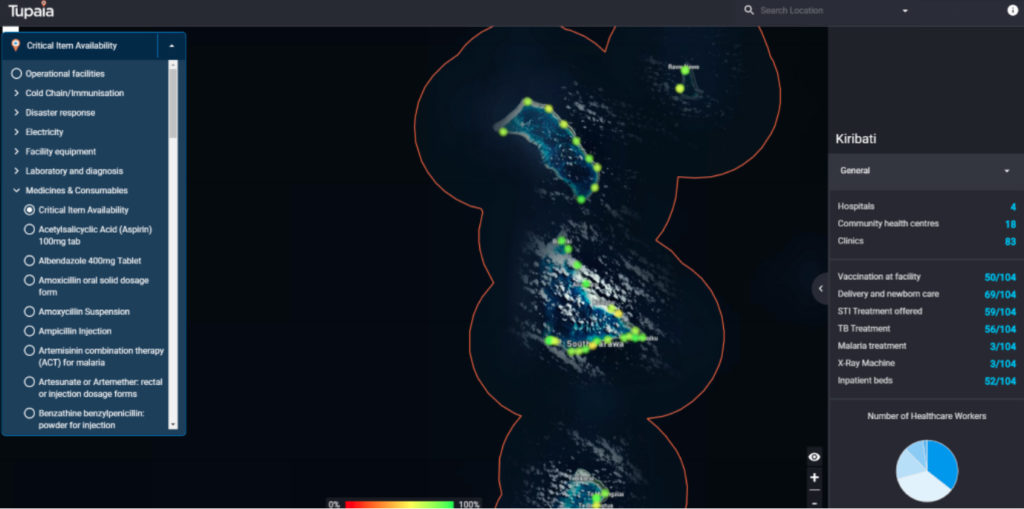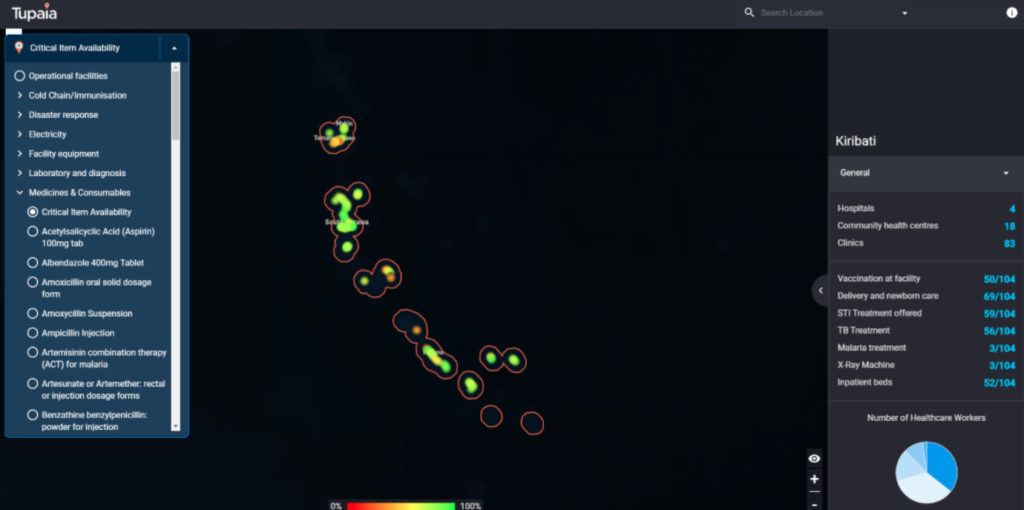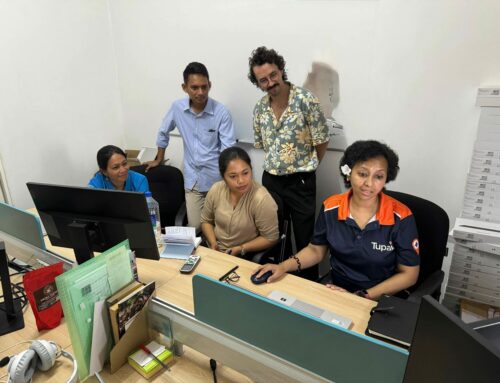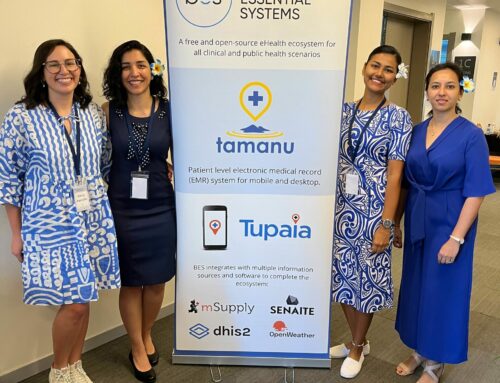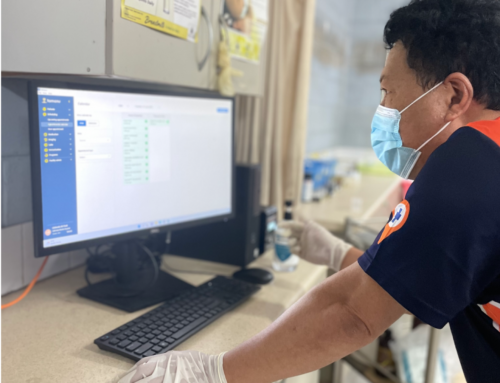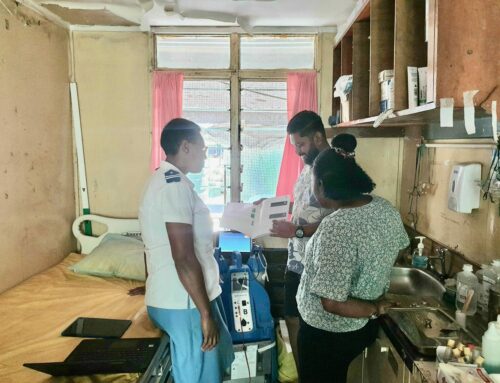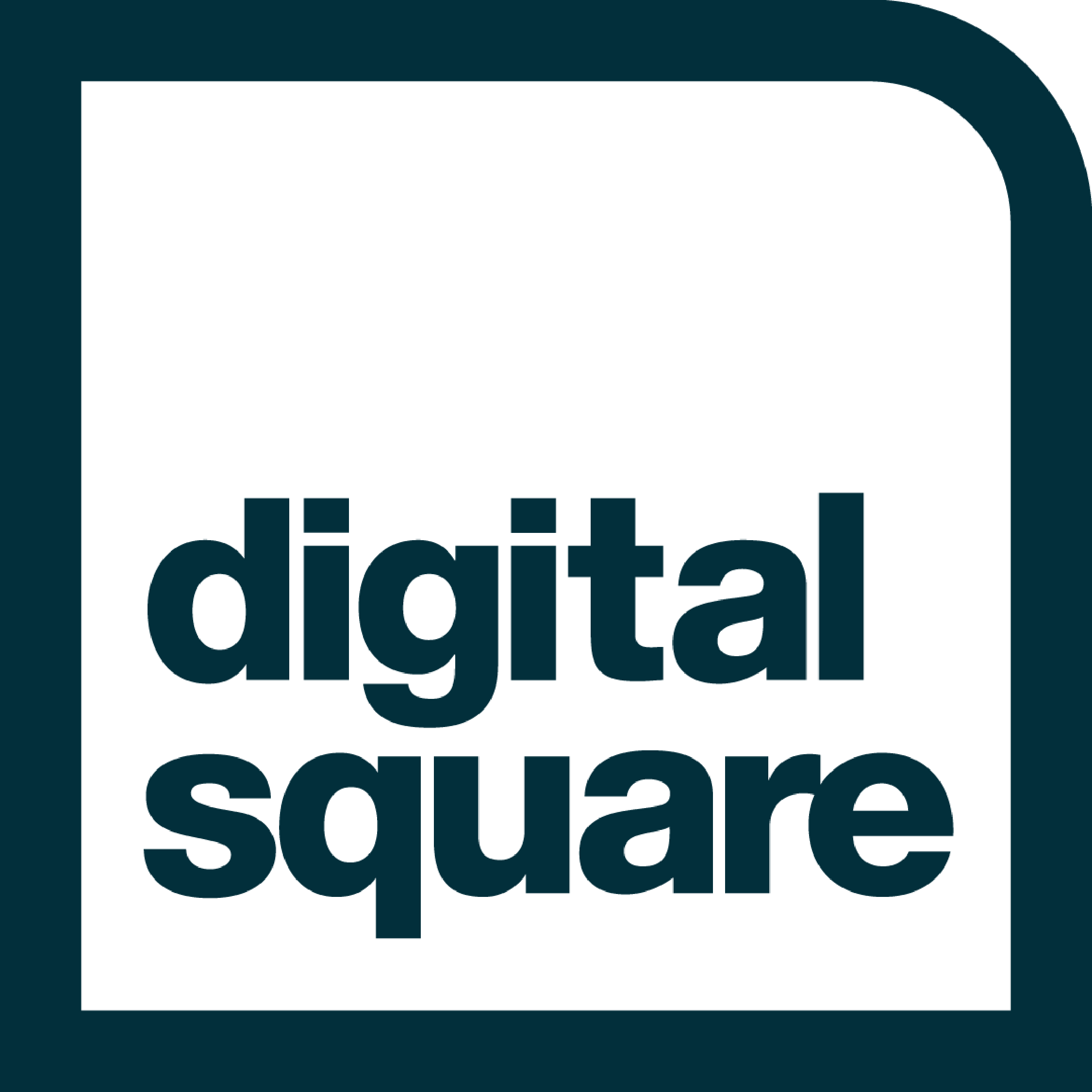How our health tech – coupled with targeted training and support – is improving medicines availability in Kiribati.
Kiribati’s health supply chain is on the right track – medicines availability has increased by 22% in the last year alone, with the number of urgent orders placed by clinics halving in the last two years.
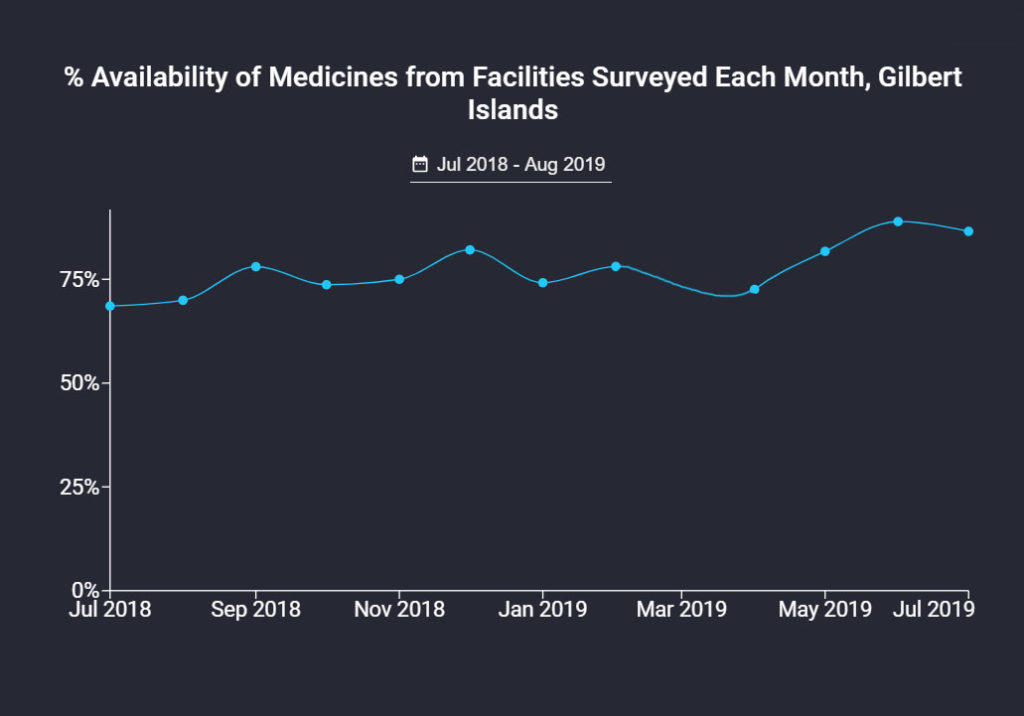
Graph from our Kiribati dashboard showing medicines availability from July 2018 to Aug 2019.
Increasing visibility and availability of medicine
Making sure the right medicine is available at the right time for the people who need it most, is what’s at the heart of a good supply chain. In remote island nations like Kiribati, where there are over 105 health facilities across 33 islands, this can be costly and resource intensive.
Knowing where to direct resources and where supplies are needed is also extremely difficult. Until two years ago, Kiribati tracked all medical supplies from the clinic level using paper order forms and the Ministry of Health had almost no visibility over real-time supply chain issues.
From late 2017, we began rolling out mSupply Mobile and Tupaia’s health mapping tools in Kiribati, to help address these issues and make the ‘boring’ job of administering health supply chain information easier for the dedicated staff who do it for a living.
In the last two years, we have implemented mSupply Mobile in 42 facilities and 364 basic facility-level supply chain surveys have been collected: 146 of these have been submitted in the last year alone via crowd-sourcing. These form part of the >30,000 surveys collected using Tupaia across the region since 2017.
With this information comes power! The power to predict which clinics need supplies and what medicines need to be mobilised, to avoid emergency orders that can be prevented.
We already knew that we were seeing real success in Kiribati with a 22% increase in medicine availability in the last year (see graph from our Kiribati dashboard above). In the last Financial Year in Kiribati, medicines availability rose from 67.4% (July 2018) to 88.9% (June 2019).
Reducing the need for urgent orders
Biribo Kararaiti, Head Pharmacist at the Pharmacy Department in Tarawa, also reports that they have simultaneously seen a healthy decline in the number of urgent orders being placed by clinics to the national stores each year.
Urgent orders are placed by clinics when they run out of stock of important products before they are due to place their next regular order. Urgent orders are problematic for a number of reasons. They:
- are expensive to fulfil as additional emergency transport needs to be arranged
- place pressure on national authorities and make quantification more difficult
- increase the workload of pharmacy and warehouse staff, and
- tend to be a proxy indicator of the performance of a health supply chain – a lot of urgent orders suggests a lot of stock-outs at clinics, impacting patients.
Reducing the number of urgent orders being placed by clinics saves substantial amounts of money and suggests that local systems are improving.
Urgent orders have reduced from 435 to 226. As a % of the total number of orders placed, they have reduced from 31.70% to 16.47%.
Urgent orders from health facilities at a national level in Kiribati.
International Programs Manager Kahlinda Mahoney explains the significance of these figures:
“Kiribati had urgent orders around 30% for a long time before mSupply Mobile and Tupaia were introduced. In 2015 and 2016, this can be seen. In 2017, we introduced mSupply Mobile and Tupaia around the middle of the year and started to see substantial decreases in urgent orders. As the new tech was further established in 2018, this trend continued.”
Improving health supply chains
We have helped the Kiribati Pharmacy Division reduce urgent orders and improve their health supply chains in several ways:
- They are able to see live stock levels at each health clinic, so they can get a sense of whether the regular order is accurate or needs to be adjusted.
- Tupaia heatmaps of medicines availability are used to efficiently plan annual tours that focus on the areas with low availability and provide additional training and support to ensure local nurses are managing stock effectively.
- Being able to quickly see which stock is available at nearby facilities, means nurses are able to request urgent items, instead of placing expensive orders to the national store. We know that nurses are doing this using our technology and via the messaging app we have simultaneously implemented to build social networks of health workers across the country.
We hope to continue working with the Kiribati Pharmacy Division to improve medicines availability and expand the benefits of eHealth to other areas of their system – the results we are seeing are extremely positive.
